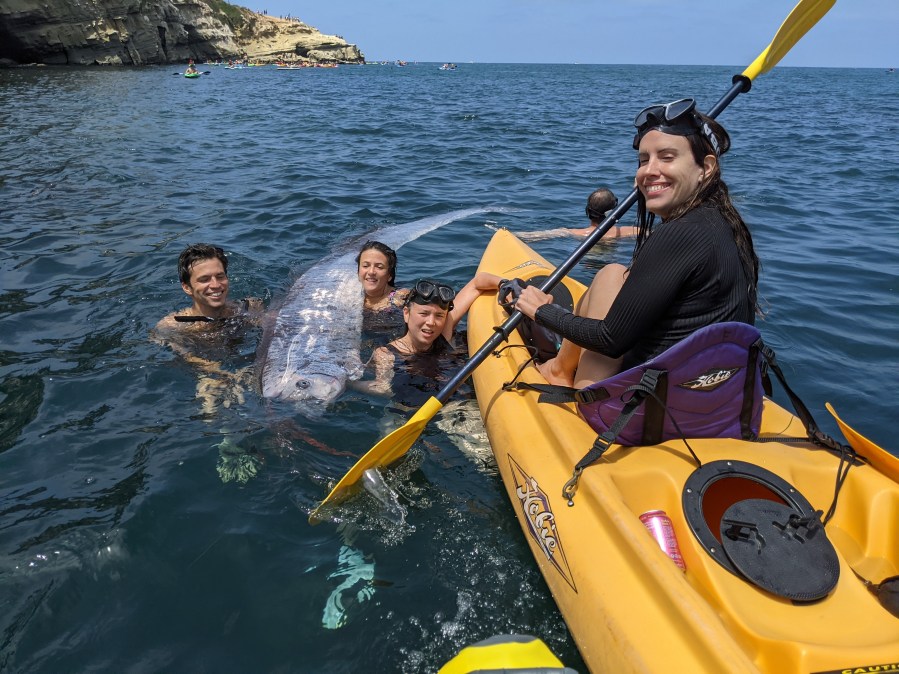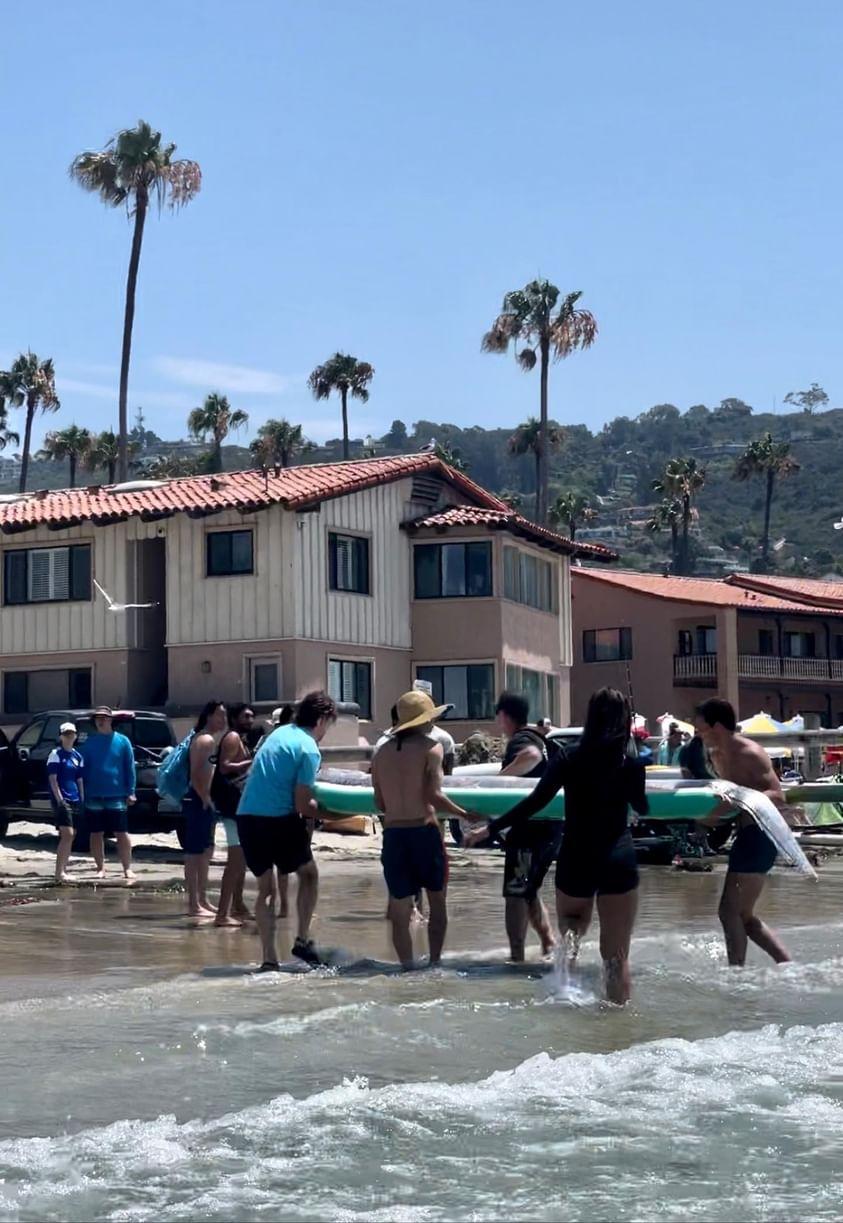Only 19 oarfish — a very long, silvery, deep-sea dweller — have been found along California's shore since way back in 1901, according to an expert from UC San Diego.
That number increased to 20 over the weekend when a group of snorkelers, kayakers and paddleboarders discovered a 12-foot specimen of the rarity floating offshore of La Jolla Cove.

The oarfish, known as "sea serpents" or "doomsday fish," have a hallowed place in the museum of marine oddities: They can grow to dozens of feet in length and generally swim vertically, according to Ben Frable, who is the collection manager of the Marine Vertebrate Collection at Scripps Institution of Oceanography.
"They get at least 25 feet, with reports in the 30-plus range," Frable said. "In terms of weight, it's estimated the big ones are 500-plus pounds!"
Legend has it that the sea creature is a harbinger of earthquakes and other natural disasters — "although no correlation has been proven," says Scripps — which makes the timing of its discovery interesting, considering that there was quake with a magnitude of 4.4 centered near the Highland Park neighborhood of Los Angeles on Monday. That temblor came on the heels of a 5.2-magnitude earthquake on Aug. 6, which was centered near Bakersfield and was felt across most of Southern California. UPDATE: Another quake, this one a 3.9, shook Lake Elsinore and portions San Diego County on Thursday — Ed.
Get Tri-state area news delivered to your inbox. Sign up for NBC New York's News Headlines newsletter.

A half-dozen or so amateur scientists — including Emily Miller, Michael Wang, Monica DeYoung and Owyn Gunderson — worked together on Saturday to bring the sea monster to shore at La Jolla Cove, first in the water, then on a paddleboard with its tail hanging off the end, ending its journey in the bed of a pickup truck.
"Thanks to the work from these locals, scientists will be able to further study this mysterious species as it will become part of the Marine Vertebrate Collection at Scripps, one of the largest collections of deep-sea fish in the world," said, in part, a news release sent out Wednesday from UC San Diego.
The fish folks over there will school with their colleagues from the National Oceanic and Atmospheric Administration's Southwest Fisheries Science Center on Friday to perform a necropsy on the oarfish in an effort to figure out why it died.
Oarfish have been found in Oceanside in 2013 and also in Catalina in 2015.
While scientists don't know why oarfish wash up on California's beaches, they say they have learned from each of the 20 specimens collected so far. Find something unfamiliar? Tell a lifeguard, send an email to scrippsnews@ucsd.edu or call (858) 534-3624.

